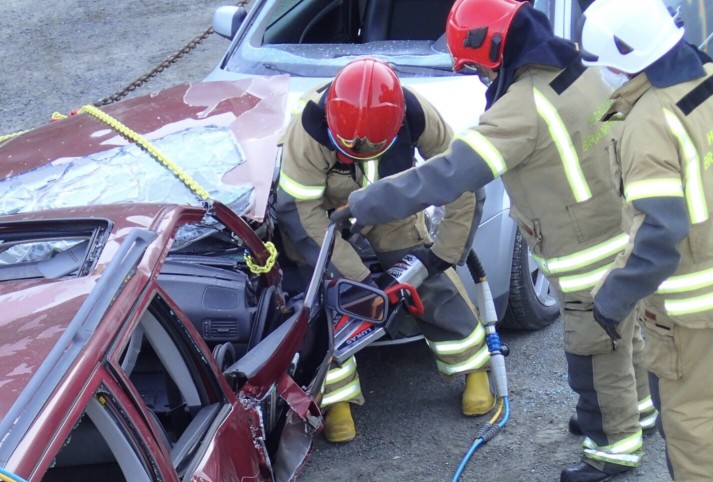Can You Claim Workers Compensation on Your Way to Work?
While the majority of injuries occur on the job, people can also experience injuries while travelling to and from work.
‘Can an employee claim compensation if they are hurt on their way to or from work?’ is a regular question we receive often.
Most workers in Australia are only entitled for journey claims if the accident occurred while on the job, during a work trip, or during a permitted break. Several states and territories, however, provide coverage and compensation for injuries sustained between an employee’s home and place of employment.
Employees in New South Wales (NSW), the Northern Territory (NT), the Australian Capital Territory (ACT), and Queensland (QLD) can file a statutory claim if they are injured on their way to or from work. However, in NSW, the procedure is more complicated. Workers in New South Wales can only be compensated if they can prove “a real and significant connection between the job and the occurrence from which the harm occurred.”
That said, if you have been injured in a road accident on your way to work or from work to home, it’s likely you will be able to claim under Motor Vehicle Accident insurance.
So, simply put, if you’re injured in a car accident on your way to or from work, you’ll need to file a claim with the CTP insurer because it’s not considered part of your work day unless you can prove a significant link between your job and the accident that caused the injury. At Law By Dan, we can help you lodge your claim. We discuss this further below.
As a worker, your journey begins when you cross your home boundary and ends when you cross your employer’s boundary, and any injuries that occur during these journeys are classified as journey claims under the NSW Workers Compensation Act.
It’s vital to understand that your employer’s boundary isn’t restricted to the workplace; it might also include shopping malls for retail employees, office buildings for office employees, and parking lots for carpark employees. As a result, the travel ends the instant you pass this employer boundary on your route to work.
When is travel to and from work covered by workers compensation in NSW?
Workers compensation to and from work is only covered in NSW if there is a true and substantial link between your job and the accident.
When it comes to journey claims, the word “real and substantial connection” basically indicates a compelling and substantiated purpose other than just travelling to or from work at the time of the accident. You must prove a special cause that connects your employment to the accident in order to be successful.
This implies that most NSW workers will only be able to file a Workers Compensation claim for a journey if there is a “real and significant relationship” between their employment and the accident that caused their injuries. The worker must be able to prove that driving was a requirement of their employment.
The subject of “what is a real and significant relationship between the job and the accident that produced the worker’s injuries?” has been considered by the Workers Compensation Commission. In one case, a rural worker whose employer asked her to work late was required to drive to and from work in the dark on country roads. The woman was driving home from work at nightfall on the night in question when she collided with several animals due to poor visibility.
In this case, the worker successfully established that there was a real and substantial relationship between her employment and the accident since her employer had specifically expected her to conclude work late in the evening.
Journey claims, like all other parts of Workers Compensation law, are fraught with complications. It’s worth noting that, while the situation has changed dramatically in recent years, a worker can still make a journey claim in a variety of circumstances.
Workers in NSW are eligible for workers compensation to and from work provided they can demonstrate a real and substantial link to their job, although in other occupations, this isn’t required to make a journey claim. These are some of the jobs available:
- Miners
- Officers of the law
- Paramedics
- Firefighters
- Volunteers from the emergency services
Is your lunch break covered by workers’ compensation?
Even if you’re injured beyond your employer’s perimeter, a lunch break is regarded an authorised recess, and as long as you’re not engaging in an unauthorised reckless activity, you’ll likely be covered for workers compensation.
For example, if you’re a construction worker and you break your ankle while stepping off the gutter on the footpath on your way to a snack bar for lunch, you’ll almost certainly be entitled to workers compensation. You’ll almost certainly be covered if you’re an office worker who decides to go for a run on your lunch break and trips over and gravely injures your wrist.
If you are hurt while participating in an unauthorised risky activity that was not supported by management, such as a football game at a nearby park, you are unlikely to be covered.
If you’re hurt on your way to work, do you have a right to compensation?
Employees in New South Wales (NSW) are not covered for compensable injuries sustained while travelling between home and work unless they can prove a direct link between their employment and the accident in which they were injured.
What are the rules for your commute to work?
As previously indicated, an employee in NSW is not covered for compensable injuries sustained while travelling between home and work. This will be the case unless the employee can prove a direct link between their employment and the accident and personal injury they suffered.
Workers compensation regulations must, as you may imagine, specify who is covered in all forms of labour. Some industries, such as truck driving, require people to commute directly from their homes to work sites.
The law safeguards these types of work-related issues. According to the Workers Compensation Act of 1987, “a real and significant connection between the job and the accident or occurrence out of which the personal injury originated” must be shown (NSW).
You may be entitled to compensation under the Compulsory Third Party (CTP) Scheme if you are injured in a motor vehicle accident while travelling between your business and home. However, this is determined on a case-by-case basis.
What to do if injured on the road going to or from work.
Every day, most of us will rely on a motor vehicle, either as a passenger or as a driver, to go to and from work, and occasionally even during work hours.
If you are injured in a motor vehicle accident while at work (including on public transportation), your claim for compensation for time off work and medical expenses is made to your employer, not the CTP insurer (although you might also have rights under the CTP scheme). This also applies if you’re on a break and drive to get some lunch; this is known as a ‘authorised recess’ from work and is covered by Workers Compensation.
If you file a Workers Compensation claim, you will be eligible for a variety of benefits, including:
- Weekly payments to compensate for lost wages;
- medical and related expenditures;
- rehabilitation services;
- and, in some cases, a lump sum payout.
These are known as No-Fault Entitlements, which means they can be claimed regardless of who caused the disaster.
If your injury was caused by someone else’s negligence, you may be eligible to file a common law claim for compensation for pain and suffering, lost wages, and past and future medical bills and care needs. The following are examples of when someone else may be to blame for your injury:
Another driver if they were driving recklessly; the local council/road authority if the road was hazardous; the site owner if you were driving at an unsafe worksite; and your employer if the work vehicle you were driving was not properly maintained.
Different rules, as well as time constraints, will apply to different sorts of common law claims. We encourage that you speak with an expert lawyer from Law By Dan as soon as possible to ensure that you understand your rights.
Get Legal Advice
Compensation law is very complex, and governed by very strict rules and regulations. For this reason, it is very important to seek legal advice as early as possible from an experienced compensation lawyer today.


